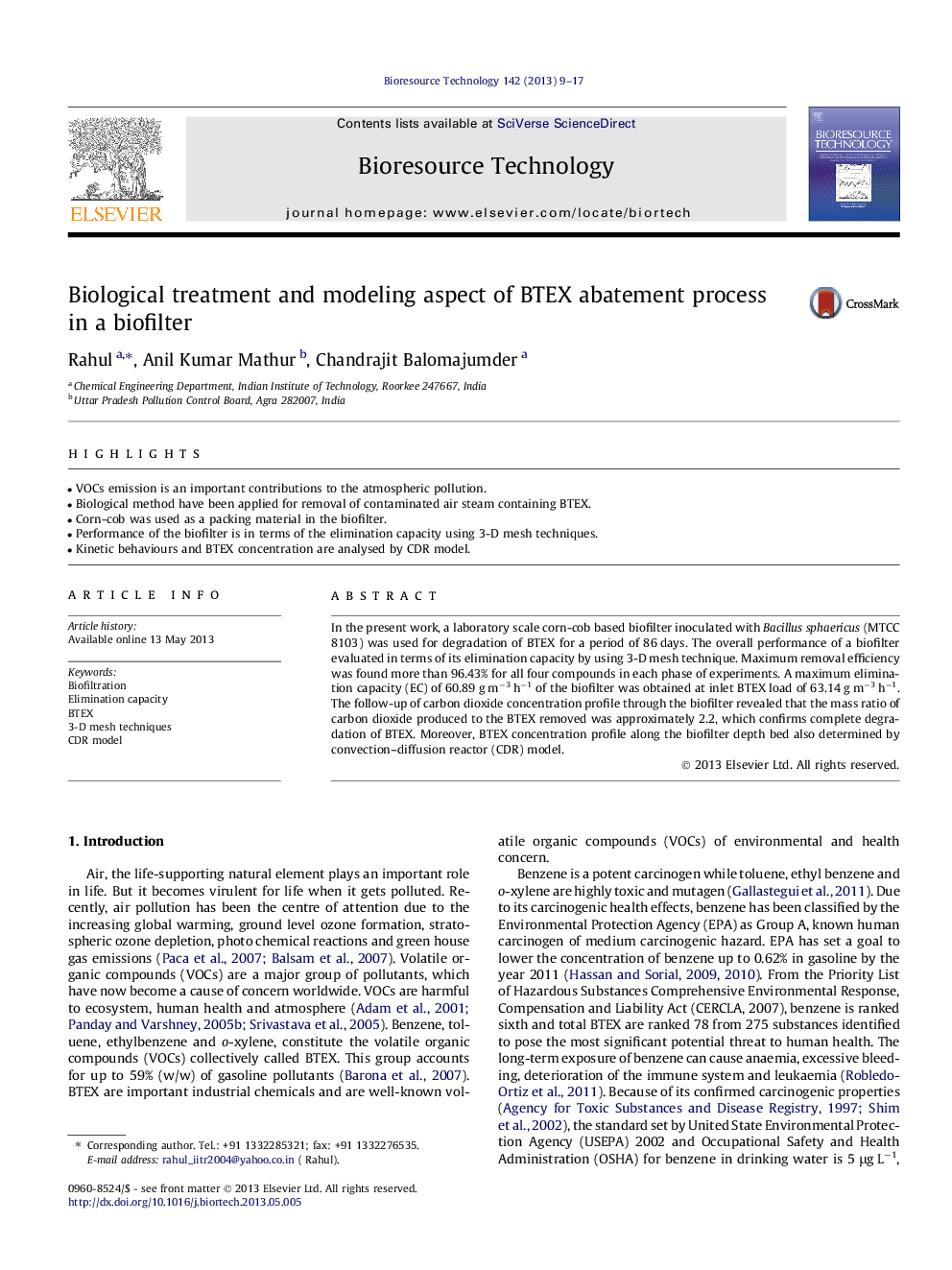| Article ID | Journal | Published Year | Pages | File Type |
|---|---|---|---|---|
| 7081412 | Bioresource Technology | 2013 | 9 Pages |
Abstract
In the present work, a laboratory scale corn-cob based biofilter inoculated with Bacillus sphaericus (MTCC 8103) was used for degradation of BTEX for a period of 86 days. The overall performance of a biofilter evaluated in terms of its elimination capacity by using 3-D mesh technique. Maximum removal efficiency was found more than 96.43% for all four compounds in each phase of experiments. A maximum elimination capacity (EC) of 60.89 g mâ3 hâ1 of the biofilter was obtained at inlet BTEX load of 63.14 g mâ3 hâ1. The follow-up of carbon dioxide concentration profile through the biofilter revealed that the mass ratio of carbon dioxide produced to the BTEX removed was approximately 2.2, which confirms complete degradation of BTEX. Moreover, BTEX concentration profile along the biofilter depth bed also determined by convection-diffusion reactor (CDR) model.
Related Topics
Physical Sciences and Engineering
Chemical Engineering
Process Chemistry and Technology
Authors
Rahul Rahul, Anil Kumar Mathur, Chandrajit Balomajumder,
